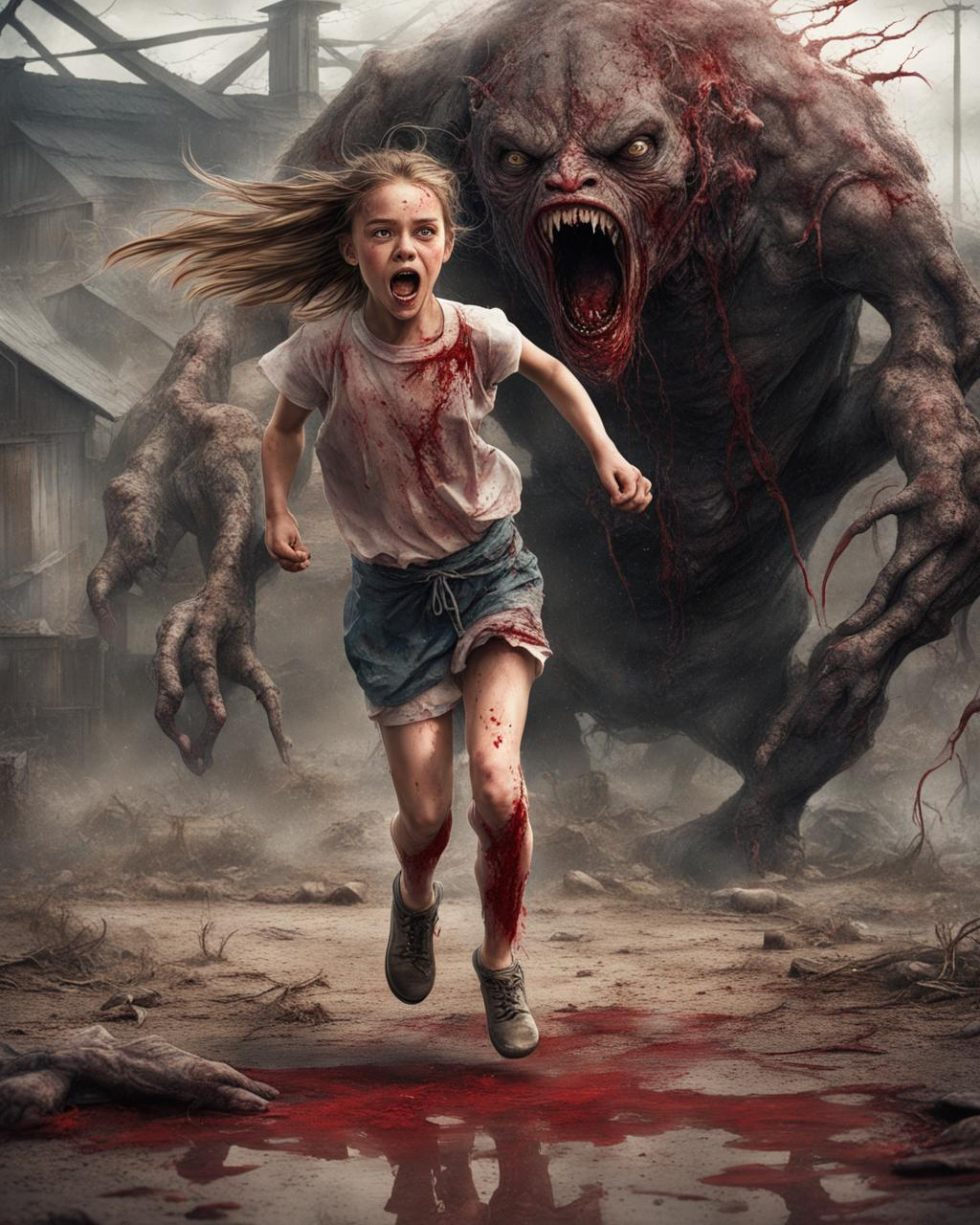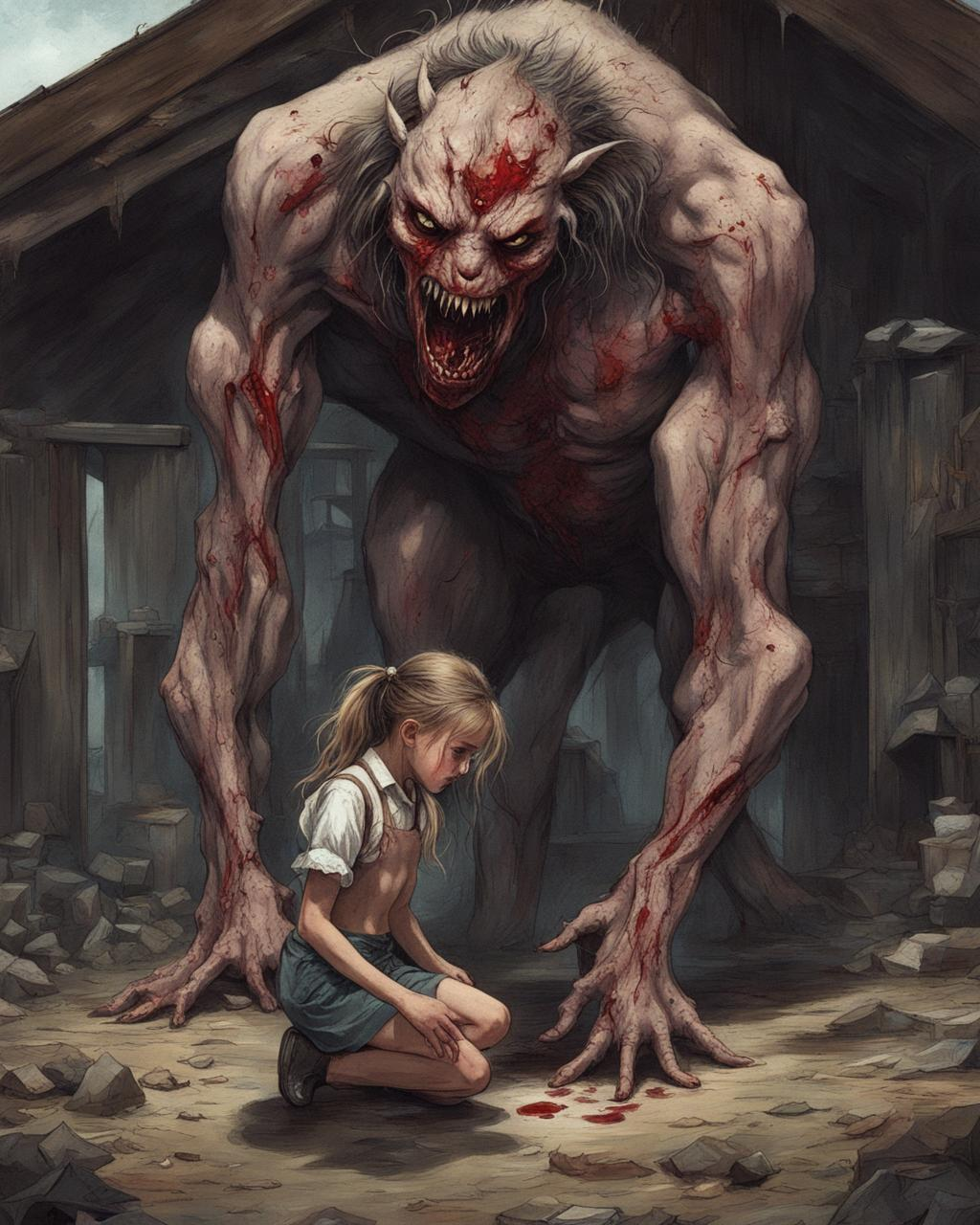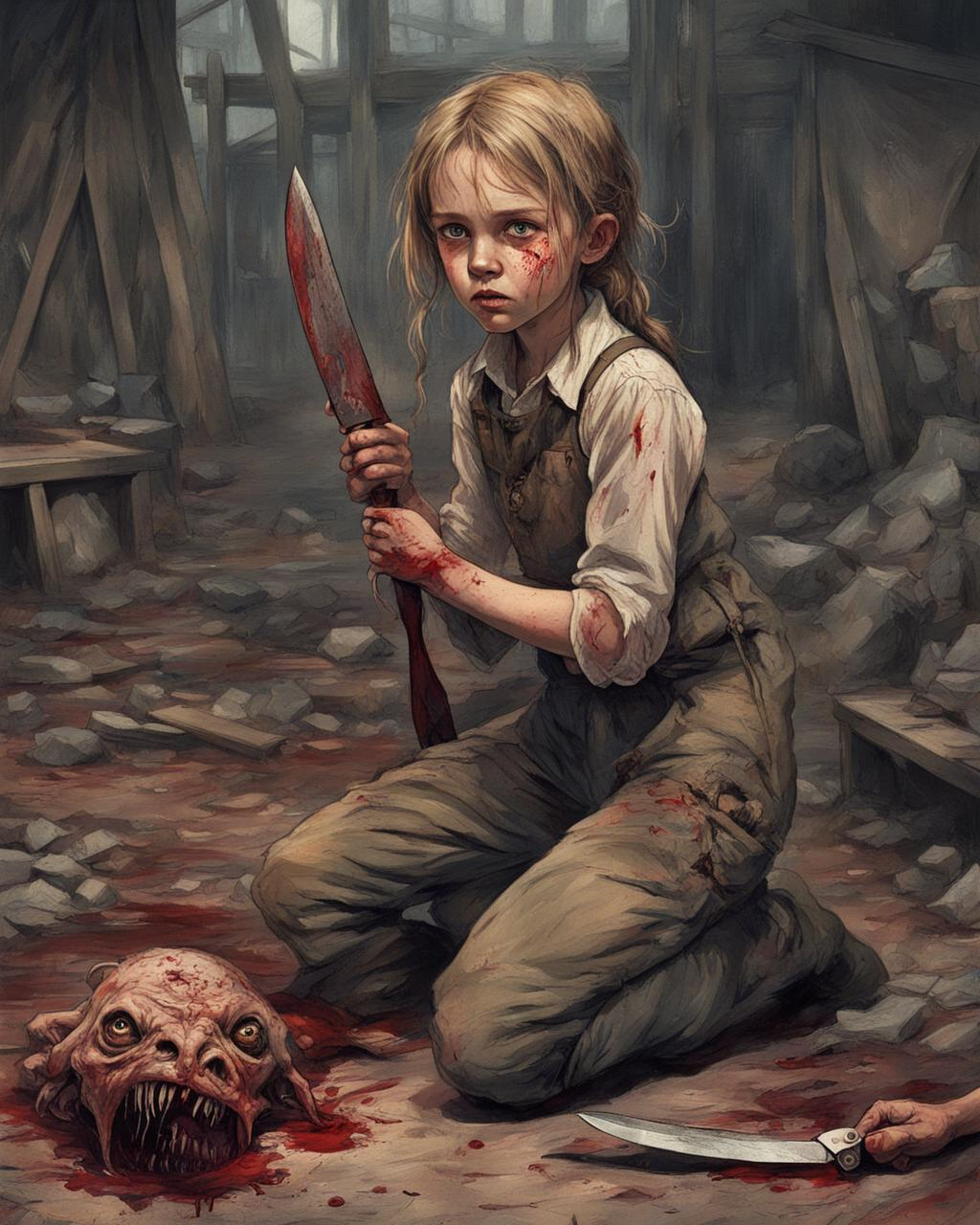Running with the monsters
Yesterday, I mentioned the difference in writing stories set in a recognisably here modern world, “urban” for short, as opposed to an “epic” world, such as an ancient/medieval/futuristic fantasy world or a society that evolved on a different planet with resulting consequences.
E.g. in an epic setting, you may have to show through action how the imaginary and original form of transport works through a long winding journey. In an urban setting, you can just have the characters get in a car and go to the next location.
On the other hand, Fantasy helps to level the ground and removes all the baggage. When reading stories about talking ants on the planet Zog, it doesn’t matter what your social/political/economic/cultural situation is here on earth, you can just as easily suspend disbelief (or not) as everyone else. It’s the quality (or lack thereof) of the writing that allows you to immerse (or not).
 |
|---|
| I didn’t expect that on the way to school, luckily I put my good boots on. |
With fantasy, you can show evil through giant monsters, or quite calm things, such as in C. S. Lewis’ Narnia series (e.g. taking Turkish delight from a witch), or things which don’t occur in real life, as in Geoffrey of Monmouth’s Historia Regum Britanniae, King Uther Pendragon falls in lust with Igraine, the most beautiful lady in Britain, so he gets the court wizard to shapeshift him into the appearance of her husband and he gets his night of passion, which results in a secret heir, Arthur, but also the inciting incident for Arthur’s enemies to hate him too.
(Referring to yesterday’s post, maybe that’s how I get a Christopher Tolkien to edit all my books for me. All I need is a wizard and a supermodel. Applications are open for both roles.)
In my fantasy setting, I am trying to keep it as close to scientifically plausible as possible, despite, to misquote Star Wars: it’s set a long time ago, on a planet far-far away. Their planet is nearer their star, the moon is nearer, primates did not become the dominant intelligent species, more powerful biological bodies led to less reliance on technology, the waves are far more powerful, leading to faster and more deadly sea transport. You get the idea. You only need to tweak a few things in the environment and the whole of evolution, society and known reality is different. You can’t out and out say any of the above, you just have to show it through the action.
Somehow the villains and antiheroes prospering, or plain getting off, on performing immoral acts is readable because it is not where we live, and perhaps the society progresses to a more happy state. The Grimdark doesn’t seem as bad. But does that, in turn, blunt the power of the text?
 |
|---|
| Another beast, man I can’t catch a break |
When writing urban stories, it’s more “problematic” in that in my quest to make the characters believable and the plot exciting, the characters are corrupt corporate leaders, corrupt bureaucrats, bent cops, power-hungry politicians, criminals, terrorists, creeps, freaks and losers and they do a lot of hedonistic and immoral acts. Just like we all do.
The grim and the dark hits home harder, perhaps too hard, because we live in this kind of world where people do evil things, and we just get on with our day and leave the powerful and corrupt to it. Indeed, we all benefit from it. What form of living hell did people in the developing world go through to mine the rare earth metals in the battery on the device you reading this on now? Or who assembled the device in a sweatshop factory in the far east? Or who made the servers in the cloud farm that this webpage was downloaded from? Who made the clothes you are wearing?
There are 50 million modern day slaves and even more people treated almost as badly as slaves, and we just whistle and tell stories about slavery three-hundred-years ago because it’s easier, because it’s a history, which at the distance of several hundred years, is akin to a fantasy, a myth, not the lives we are living now.
People buy Apple branded phones for the status they give, and because of the marketing effort placed in the logo and appearance. They don’t give a crap about the moral issues. They are all kinds of projects to make more ethical phones and laptops and things, no one cares. Using some brick that loads an open source operating system doesn’t give as much status as a slim, shiny iPhone with beautifully designed no-thought required interfaces.
In three-hundred-years they will see us differently. Was Steve Jobs a technology revolutionary who created breakthrough concepts like laptops and smartphones, or was he the guy who led social and environmental slavery through the mass exploitation of rare earth metals?
The dark parody is that our children in the “free world” are busily pretending to mine in computer games, and it is nothing like the reality of children mining in Africa. The West moved out of Africa, and the newly appointed local leaders sold their people as effective slaves to the Chinese, who are making six-years mine Cobalt without masks, breathing the toxic dust into their lungs. Our leaders are gangsters, territory swaps between them, but no one is ever set free.
Gearing is a wonderful invention. They make velomobiles (Bugsy-Malone-style pedal cars) that can ride at 95 mph. But no one wants to buy them at scale because you have to pedal, and the fear of a badly-driven heavy people-killing petrol powered car cutting through you like butter. We are (not) “solving” the issue of heavy polluting people-killing petrol cars by inventing even heaver polluting electric cars. Because we want to be fat and lazy. We need trucks instead of freight trains because we want fashionable goods delivered quickly, not things planned long ahead.
Even those activists who give their lives to fixing an issue, can never breakthrough the selfish gene. And as for our so-called “leaders” of government, industry and the arts: It’s totally necessary for the elite, to fly in their private jets because of… mathematically disproved hand-waving… awareness raising… don’t look behind the curtain… to inspire the peasants over there to reduce their carbon footprint.
If Leonardo DiCaprio doesn’t fly to pick up climate awards (and to his private island, and parties on the west and east coast) in his private jet, then we peasants will cover ourselves in crude oil, set ourselves alight and run screaming into the forests.
I could have picked many issues, not just the tech components issue or the hypocrisy of private jets, but the harsh truth is there is pants we can do about it as individuals, and the powers that be will never let us organise as a group if it really threatens their interests, their hold on the wealth and resources. They will allow some protest and organisation if they can subvert it to their interests, or use a pressure release, but that’s as far as they will allow.
I love the scene in the Matrix (1999) where the main character is struggling with deep issues. The character called the Oracle just resets him with the line:
“Don’t worry about it, as soon as you step outside that door, you’ll start feeling better….. here, take a cookie, I promise you’re done eating it, you’ll feel right as rain”.
People have tried to interpret this scene in different ways, e.g. the door was magic or the cookies contained special source code. But I like the idea they are just a door and cookies. As Taylor Swift sings, we humans have an amazing capacity to “shake it off” and just press on. This works both ways. Not just shaking off bullies, we can shake off victims too. The production of your phone may be killing children, “shake it off”. There are slaves now in Africa, “shake it off.”
The religious answer to that is because this world will never be perfect, to help us search for God and a better life to come. Hmmm, I don’t know about that. That gives mental peace, but peace through surrender. I’m still thinking about that. Is that like the Matrix’s cookie above?
In fiction, we can often explore these issues more freely and more deeply than the politicians or journalists can. And if it’s too hard to talk about in an urban setting, turning into a fantasy is better than not writing about it at all. In extremis, if we do it too well, if we get too close to the truth, they will ban the book. There is never any need to ban falsehoods, as you can disprove them with truth. They only need to ban the inconvenient truths.
Discworld, and other books about people living on a flat earth, are never banned, because it’s easy to prove we live on a spherical earth, but Nineteen Eighty-four (1949) by George Orwell was a science fiction book showing how the elite can use the media to brainwash the people, that’s been banned a lot by all sides of the political divide.
The Satanic Verses (1988) by Salman Rushdie is a fantasy book that undermines the whole concept of top-down religious authority, so religious authorities in the Islamic world want it banned. For them, there is no religion without authority, there is no god unless they the elite are being paid. They have made themselves gods, and need to be worshipped in dollars. They have the same me-centred view of things as those guys flying on their private jets to climate conferences, but they are a bit more self-aware, so are more dangerous. So they brainwash their adherents to attack the author.
There is no proof that progress is inevitable and goes forward in a straight line. And we need heroes to inspire us to change, as we will never do it ourselves.
 |
|---|
| They are big, but they still cut and bleed |